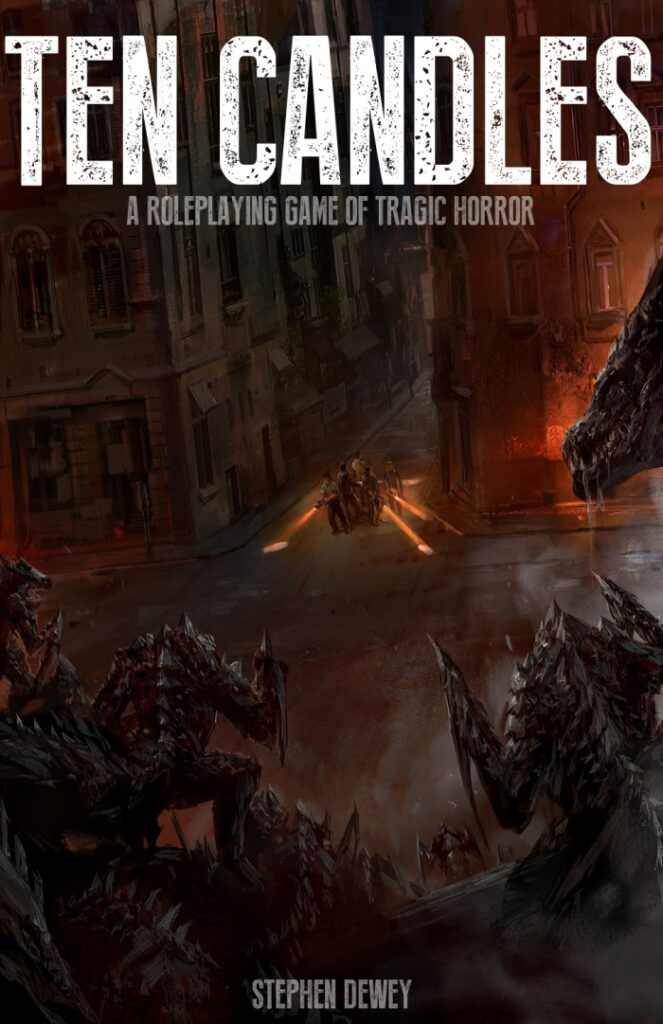I started to feel that I didn’t know roleplaying games well enough so I came up with the plan to read a roleplaying game corebook for every year they have been published. Selection criteria is whatever I find interesting.

Ten Candles is a tightly focused horror storygame that plays out in a few hours, detailing the failing struggles to survive of a small group of people in a world gone dark. The game has two overarching worldbuilding elements: Ten days ago, the sky went dark. No stars, no satellites, nothing. Five days ago, They came.
Since this is very strongly a collaborative storytelling game, the nature of Them is one of the many elements that will be created spontaneously by the participants. Although there is a GM, a lot of worldbuilding and scene resolution is in the hands of the players.
The signature mechanic of Ten Candles is ten candles. The game’s mechanics are ritualistic in nature, with wonderful emotional design baked into the experience. During character creation, the candles are lit. During play, they’re extinguished one by one, each ending a scene as they go out. The number of dice available equals the number of still lit candles, meaning that the ability of players to narrate outcomes is reduced scene by scene.
There’s no twist or surprise in the story: The characters will die in the end. That inevitability is a key part of the horror. At the same time, the aesthetics of the game are deeply rooted in genre, heightened by a co-creative design that encourages players to plop recognizable genre elements into play. My experience with horror has always been that genre tropes lessen horror because of their familiarity, while dipping into the world of the real provides tangible, personally affecting elements with a much stronger emotional impact.
That may be for the best, however, since Ten Candles is relentlessly grim. Maybe it needs a bit of emotional insulation. It’s easy to see its influence in later games. For example, the idea that at the start the participants make a recording that’s then played at the end of the game recurs in Alice is Missing.